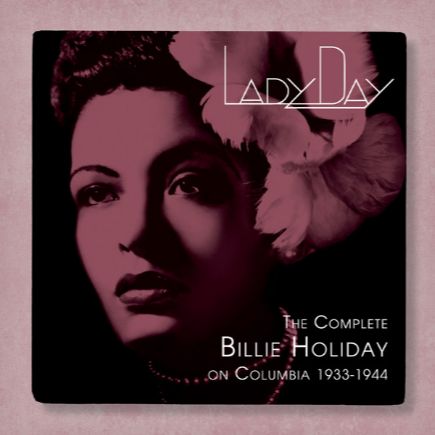God Bless the Child: une déclaration d’indépendance dans l’Amérique des inégalités
Écrite en 1939 par Arthur Herzog Jr. et Billie Holiday, God Bless the Child est bien plus qu’une ballade poignante: c’est un manifeste d’autonomie personnelle et de lucidité sociale.
Enregistrée pour la première fois le 9 mai 1941 par Holiday elle-même, la chanson puise sa force dans un épisode intime et douloureux. À la suite d’une dispute avec sa mère à propos d’argent, Holiday aurait lancé: ‘God bless the child that’s got his own’. Cette phrase, devenue le cœur du morceau, traduit un mélange de colère, de fierté blessée et de détermination.
Dès la première ligne — ‘Them that’s got shall get, them that’s not shall lose’ (Ceux qui ont recevront, ceux qui n’ont pas perdront) — le ton est donné: cynique, amer, mais d’une vérité implacable. Dans l’Amérique encore marquée par la Grande Dépression, les paroles de God Bless the Child évoquent la dureté des rapports sociaux, la précarité économique, et la fragilité des liens humains face à l’argent.
Billie Holiday: une prière intime devenue hymne universel
Le 9 mai 1941, dans un studio new-yorkais, Billie Holiday grave pour la première fois God Bless the Child, une chanson qui allait devenir l’un des sommets de son répertoire et, plus largement, une œuvre phare de l’histoire du jazz vocal.
Entourée de l’orchestre du pianiste Eddie Heywood, Holiday trouve ici un écrin sonore à la mesure de son interprétation. La formation réunit Roy Eldridge et Ernie Powell aux trompettes, Jimmy Powell et Lester Boone aux saxophones altos, Johan Robins et Paul Chapman aux guitares, Grachan Moncur II à la contrebasse et Herbert Cowans à la batterie.
Holiday s’impose dès l’introduction. Sa voix voilée, à la diction limpide, fait résonner les paroles avec une intensité rare. Dans ce chant, la spiritualité se mêle à la révolte: la formule ‘God bless the child that’s got his own’ devient affirmation d’autonomie face aux humiliations sociales. Par ses retards rythmiques, ses silences éloquents et ses inflexions chargées de vécu, Holiday transforme la chanson en confession, mais aussi en message collectif.
God Bless the Child: una declaración de independencia en la América de las desigualdades
Escrita en 1939 por Arthur Herzog Jr. y Billie Holiday, God Bless the Child es mucho más que una balada conmovedora: es un manifiesto de autonomía personal y de aguda lucidez social.
Grabada por primera vez el 9 de mayo de 1941 por la propia Holiday, la canción extrae su fuerza de un episodio íntimo y doloroso. Tras una discusión con su madre por cuestiones de dinero, Holiday habría dicho: “God bless the child that’s got his own”. Esta frase, que se convirtió en el eje del tema, expresa una mezcla de ira, orgullo herido y determinación.
Desde la primera línea — “Them that’s got shall get, them that’s not shall lose” (A los que tienen, se les dará; a los que no tienen, se les quitará) — el tono queda claro: cínico, amargo, pero de una verdad implacable. En una América aún marcada por la Gran Depresión, la letra de God Bless the Child evoca la dureza de las relaciones sociales, la precariedad económica y la fragilidad de los vínculos humanos frente al dinero.
Billie Holiday: una oración íntima convertida en himno universal
El 9 de mayo de 1941, en un estudio neoyorquino, Billie Holiday grabó por primera vez God Bless the Child, una canción destinada a convertirse en una de las cumbres de su repertorio y, más ampliamente, en una obra emblemática de la historia del jazz vocal.
Acompañada por la orquesta del pianista Eddie Heywood, Holiday encuentra aquí un marco sonoro a la altura de su interpretación. La formación reúne a Roy Eldridge y Ernie Powell en las trompetas, Jimmy Powell y Lester Boone en los saxofones altos, Johan Robins y Paul Chapman en las guitarras, Grachan Moncur II en el contrabajo y Herbert Cowans en la batería.
Holiday se impone desde la introducción. Su voz velada, de dicción cristalina, hace resonar las palabras con una intensidad poco común. En este canto, la espiritualidad se entrelaza con la rebeldía: la fórmula ‘God bless the child that’s got his own’ se convierte en afirmación de autonomía frente a las humillaciones sociales. Con sus retardos rítmicos, silencios elocuentes e inflexiones cargadas de experiencia, Holiday transforma la canción en confesión y, al mismo tiempo, en mensaje colectivo.
God Bless the Child: una dichiarazione d’indipendenza nell’America delle disuguaglianze
Scritta nel 1939 da Arthur Herzog Jr. e Billie Holiday, God Bless the Child è molto più di una ballata toccante: è un manifesto di autonomia personale e di lucida consapevolezza sociale.
Registrata per la prima volta il 9 maggio 1941 dalla stessa Holiday, la canzone trae la sua forza da un episodio intimo e doloroso. In seguito a una lite con la madre per questioni di denaro, Holiday avrebbe detto: “God bless the child that’s got his own”. Questa frase, divenuta il cuore del brano, esprime un misto di rabbia, orgoglio ferito e determinazione.
Fin dal primo verso — “Them that’s got shall get, them that’s not shall lose” (A chi ha, sarà dato; a chi non ha, sarà tolto) — il tono è chiaro: cinico, amaro, ma di una verità innegabile. Nell’America ancora segnata dalla Grande Depressione, il testo di God Bless the Child evoca la durezza dei rapporti sociali, la precarietà economica e la fragilità dei legami umani di fronte al denaro.
Billie Holiday: una preghiera intima divenuta inno universale
Il 9 maggio 1941, in uno studio di New York, Billie Holiday incide per la prima volta God Bless the Child, un brano destinato a diventare uno dei vertici del suo repertorio e, più in generale, una pietra miliare della storia del jazz vocale.
Circondata dall’orchestra del pianista Eddie Heywood, Holiday trova qui una cornice sonora all’altezza della sua interpretazione. La formazione riunisce Roy Eldridge ed Ernie Powell alle trombe, Jimmy Powell e Lester Boone ai sassofoni contralto, Johan Robins e Paul Chapman alle chitarre, Grachan Moncur II al contrabbasso ed Herbert Cowans alla batteria.
Holiday si impone fin dall’introduzione. La sua voce velata, dalla dizione limpida, fa risuonare le parole con un’intensità rara. In questo canto, la spiritualità si intreccia con la ribellione: la formula ‘God bless the child that’s got his own’ diventa affermazione di autonomia di fronte alle umiliazioni sociali. Con i suoi ritardi ritmici, i silenzi eloquenti e le inflessioni cariche di vissuto, Holiday trasforma la canzone in una confessione, ma anche in un messaggio collettivo.
God Bless the Child: a declaration of independence in an America of inequality
Written in 1939 by Arthur Herzog Jr. and Billie Holiday, God Bless the Child is far more than a poignant ballad—it is a manifesto of personal autonomy and social awareness.
First recorded on May 9, 1941, by Holiday herself, the song draws its emotional power from an intimate and painful episode. Following an argument with her mother over money, Holiday reportedly said: “God bless the child that’s got his own”. That phrase, which became the song’s central refrain, reflects a mix of anger, wounded pride, and unwavering resolve.
From the very first line—“Them that’s got shall get, them that’s not shall lose”—the tone is set: cynical, bitter, but brutally honest. In an America still reeling from the Great Depression, the lyrics of God Bless the Child evoke the harshness of social dynamics, economic insecurity, and the fragility of human relationships in the face of money.
Billie Holiday: an intimate prayer turned universal anthem
On May 9, 1941, in a New York studio, Billie Holiday recorded God Bless the Child for the first time, a song that would become one of the pinnacles of her repertoire and, more broadly, a landmark in the history of vocal jazz.
Surrounded by pianist Eddie Heywood’s orchestra, Holiday found a musical setting perfectly suited to her interpretation. The ensemble featured Roy Eldridge and Ernie Powell on trumpets, Jimmy Powell and Lester Boone on alto saxophones, Johan Robins and Paul Chapman on guitars, Grachan Moncur II on bass, and Herbert Cowans on drums.
Holiday asserted herself from the very introduction. Her veiled voice, marked by a crystalline diction, gave the lyrics an uncommon intensity. In this performance, spirituality intertwined with rebellion: the line ‘God bless the child that’s got his own’ became an affirmation of autonomy in the face of social humiliation. Through her rhythmic delays, eloquent silences, and inflections steeped in lived experience, Holiday transformed the song into both a confession and a collective message.


